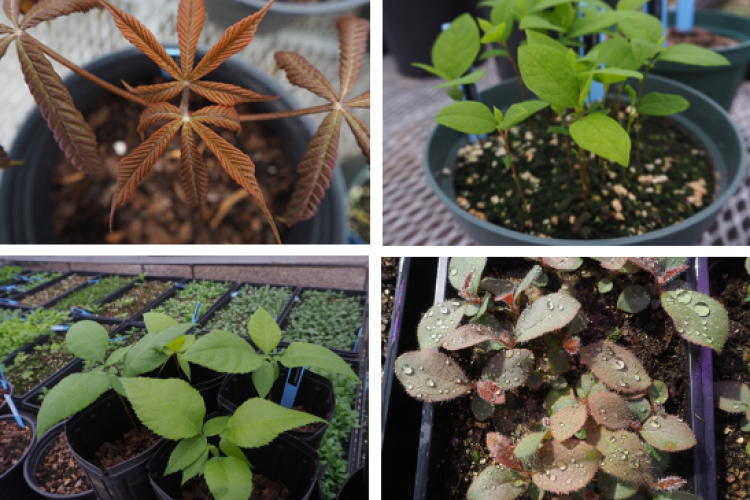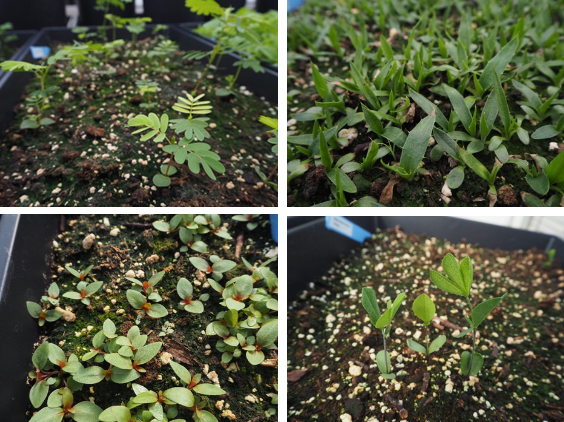From the Greenhouse
From the Greenhouse

One of the things that has brought me the greatest joy over the last two months, and especially during these uncertain times, is checking on all our beautiful plants in the greenhouse at the University of Kentucky South Farm. The Walk Across Kentucky (WAKY) native plant collection aims to preserve the genetic diversity and botanical heritage of Kentucky by collecting, growing, and planting wild-collected plant material. Last year’s collection trips to the Appalachian Plateau, Knobs, and Bluegrass regions of the state provided us with many seeds from trees, shrubs, and herbaceous perennial plants. We also collected seeds from our herbaceous plants from across The Arboretum to supplement displays and create new garden beds.
Arboretum staff and our partners collected seed from 65 different species in fall 2019, which were added into our collection. Of these species, 23 were woody plants (trees, shrubs and vines) and a total of 42 species were wild-collected from across the state. In nature, these seeds would disperse to the ground and lie dormant until conditions were right for germination. We try to mimic nature by employing various species-specific pre-sowing treatments to the seeds in order to help them break dormancy and successfully germinate in the greenhouses. We researched the best practices for seed pre-treatment, sowing, and growing conditions to maximize the potential for successful germination and growth.
We have had some great successes, some of which I will highlight. All five yellow buckeyes (Aesculus flava) collected from a stream bank near Berea Forest have germinated and are getting larger every day. These trees produce a typical buckeye fruit enclosed in a smooth husk. We collected seed from two sourwoods (Oxydendrum arboreum) – one tree from Berea Forest, as well as from one tree from The Arboretum. This tree is found in acidic soils in Appalachia and has beautiful white flowers and excellent red-orange fall color. In order to germinate the sourwood seeds, we needed to place them under a consistent light source and a plastic dome to increase humidity. The spicebush (Lindera benzoin), a small and pleasantly fragrant shrub, was collected from Bernheim Research Forest and popped up about four weeks after sowing. These three species will all be planted in the Knobs Region of the WAKY. Finally, seeds from the mockernut hickory (Carya tomentosa) collected from Floracliff Nature Sanctuary started germinating before we could even get them out of cold storage, but are doing very well. They will be planted in our woodlands and savannahs of the Bluegrass region. All our trees and shrubs will be grown in pots for several years in order to reach the right size for planting along the WAKY.

The Partridge pea (Chamaecrista fasciculata) and rattlesnake master (Eryngium yuccifolium) that were collected from The Arboretum are growing like crazy. These herbaceous plants will be planted in the Shawnee Hills and Pennyrile Prairies, respectively. We collected a small amount of seeds from the few blue wild indigo (Baptisia australis) plants still growing in the Shawnee Hills Meadow, and now have nine healthy seedlings that will be used to increase the numbers in our prairies. The rattlebox (Ludwigia alternifolia), a water-loving plant often found growing in shallow water, was collected in McCracken County and will be planted in our Mississippi Embayment wetlands. These herbaceous perennials will hopefully go in the ground this spring, if not this fall.
I hope these photos of happy, growing plants bring you a bit of peace this spring.
